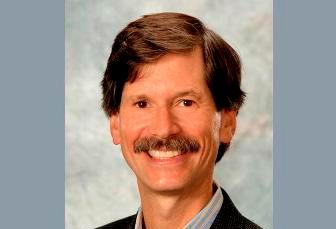Social Media is "Word of Mouth on Steroids": Or is It? - Ed Keller

At conference earlier this year, an executive from Facebook declared that social networking sites like Facebook deliver "word of mouth at scale." He went on to say, "This is what marketers have always tried to bottle up. The social web is finally allowing us to do that. This is word of mouth on steroids." The notion that social media is word of mouth on steroids is a comment I frequently hear others make, as well.
Last week, I came across an article documenting "The 100 Most Engaging Brands on Facebook" for the month of September. At first blush, the numbers appear to be impressive, indeed. Topping the list was Facebook itself with 53 million fans, followed by Coca-Cola (34m), Disney (28m), Starbucks (25m), and Red Bull (22m). Rounding out the top 10 were McDonalds (10.4m), ZARA (10.1m), Walmart (9.2m), H&M (8.3m) and Blackberry (8.3m).
I say "at first blush" because the report included not only the total number of fans, but also the number of "active fans." The ranking, released by FanGager (a social media fan engagement platform), uses the word "active" to refer to "people liking or commenting, tallied cumulatively."
The drop from "fans" to "engaged fans" is dramatic.
For example, of Coca-Cola's 34 million fans, 56,000 are "active." That is just 0.2% of the total. The Disney story is similar, with just 0.3% of the total fans qualifying as active. Starbucks fared a bit better, with 1.3% of their total fans (42,000 people)being active. The most extreme example from the brands with the 10 largest numbers of fans was McDonalds, with only 3,892 active fans (which rounds to 0%), according to FanGager. Even Facebook itself, with the largest number of fans, has only 0.1% who are active.
All told, of the ten brands with the largest number of Facebook fans – 20 million fans on average – just 0.45% are active fans.
Rob Norman, North American CEO of GroupM, spoke to this very issue recently saying that the wrong numbers tend to dazzle agencies and marketers alike. Fan engagement is a better metric than the absolute number of fans, he said. "That's where the real value is." And he too, noted that engagement numbers are just a small fraction of the total.
Let's contrast these social media fan engagement figures with the number of offline conversations for some of these brands, as measured by my firm, the Keller Fay Group. In the US alone, Coca-Cola enjoys 860 million offline conversations during an average month, including 442 million active recommendations to buy or try Coke. Compare that to the 56,000 active users on Facebook. Which one sounds more like word of mouth on steroids?
For Disney, there are 125 million offline conversations in a typical month, and 61 million active recommendations on behalf of the brand. Compare that to Disney's 83,860 active Facebook fans. And Starbucks enjoys 119 million offline conversations during the average month, of which 67 million are active recommendations. Starbucks had 76,000 active fans on Facebook during a recent month, said FanGager. The list can go on, and the story would be the same.
Facebook has tapped into a powerful social need of consumers around the world, and has amassed an extraordinarily large audience. But it has not yet unlocked the secret to engagement with advertiser brands. GroupM's Irwin Gotlieb thinks the solution is for advertisers to "think less about physical channels and more about emotional channels." We at Keller Fay agree, and I have written recently about the importance of emotions as a conversational trigger and engagement glue.
In addition, we believe brands must think holistically about social engagement, and consider all the media/marketing channels that drive consumer word of mouth and brand advocacy. Driving fan engagement on social networking sites is one vehicle among many. As we have said before, "all media are social," suggesting there are multiple touch points that can be deployed by marketers to unleash advocacy. And the behaviors that define engagement need to be looked for offline as well as online.
Ed Keller, CEO of the Keller Fay Group, has been called "one of the most recognized names in word of mouth." The publication of Keller's book,The Influentials, has been called the "seminal moment in the development of word of mouth." Ed can be contacted at ekeller@kellerfay.com. You can follow Ed Keller on Twitter: @kellerfay
Read all Ed’s MediaBizBloggers commentaries at WOM Matters.
Check us out on Facebook at MediaBizBloggers.com
Follow our Twitter updates @MediaBizBlogger
The opinions and points of view expressed in this commentary are exclusively the views of the author and do not necessarily represent the views of MediaBizBloggers.com management or associated bloggers. MediaBizBloggers is an open thought leadership platform and readers may share their comments and opinions in response to all commentaries.


